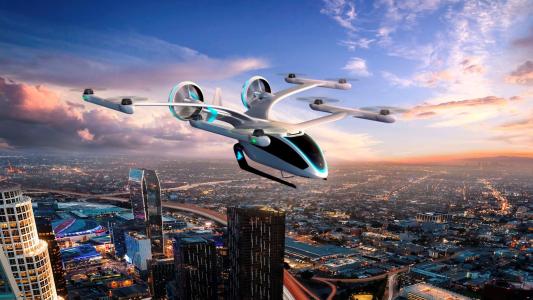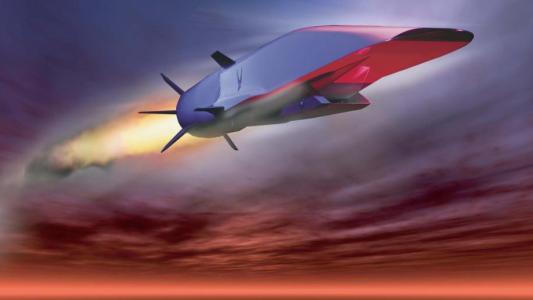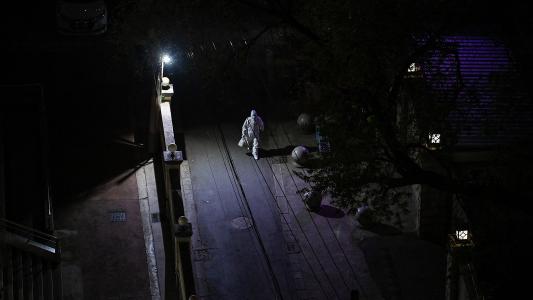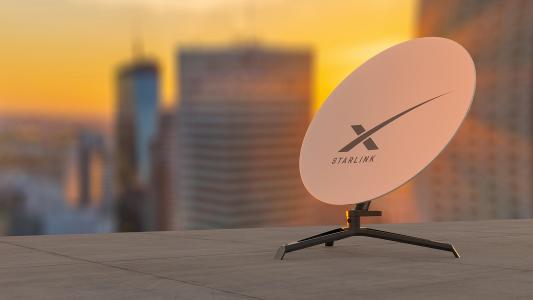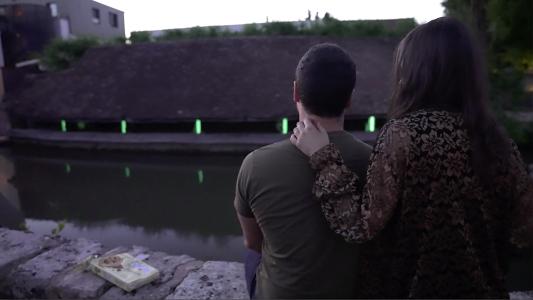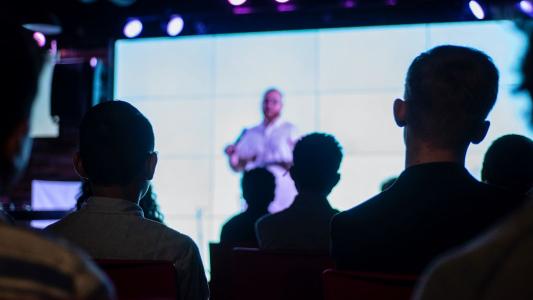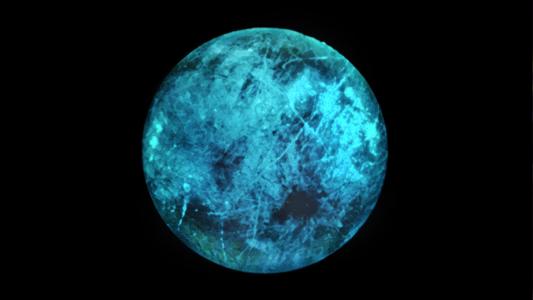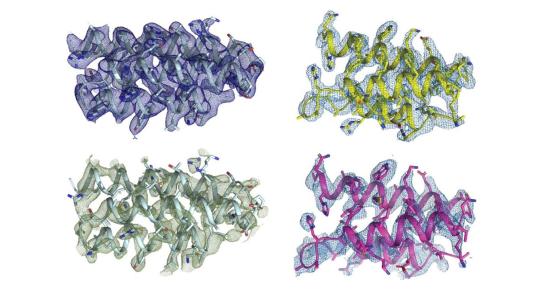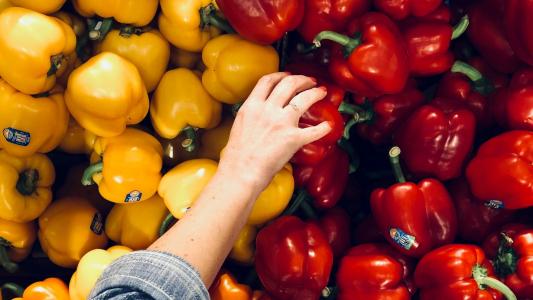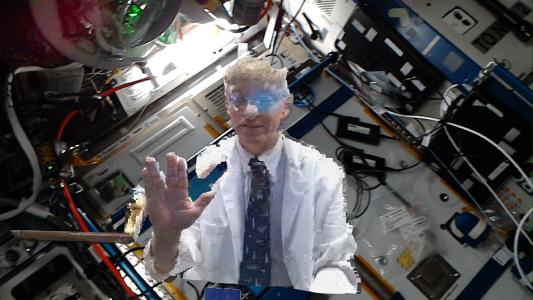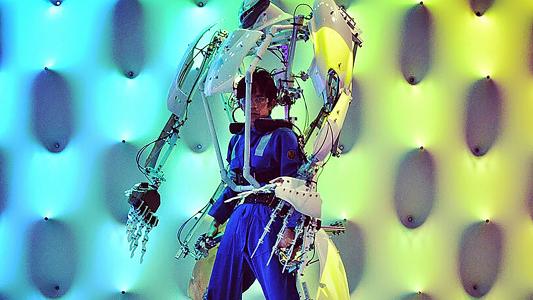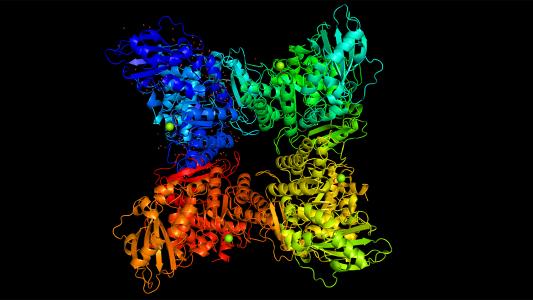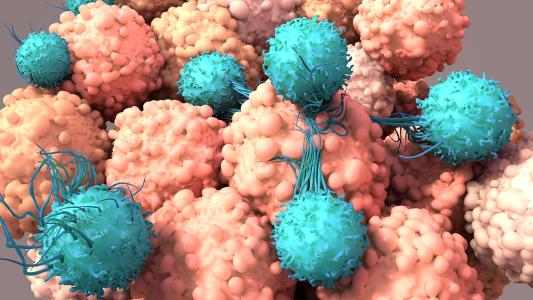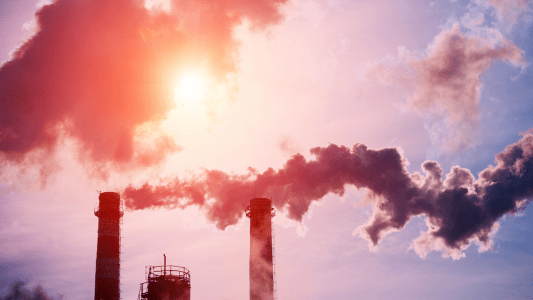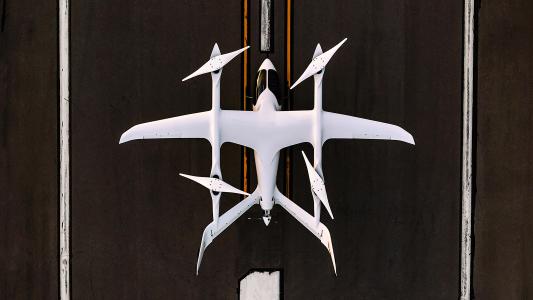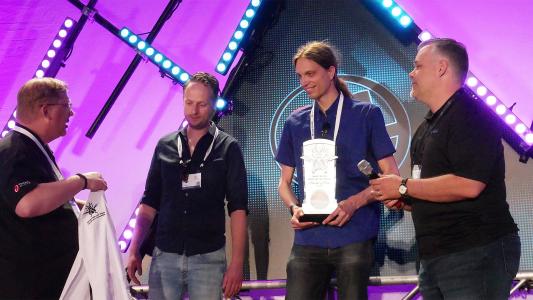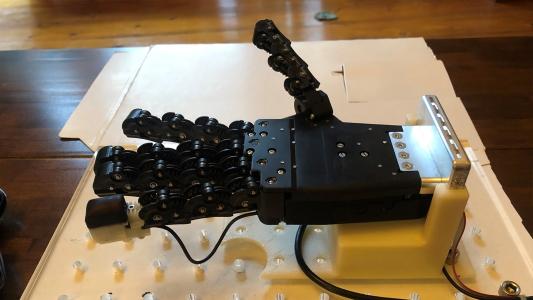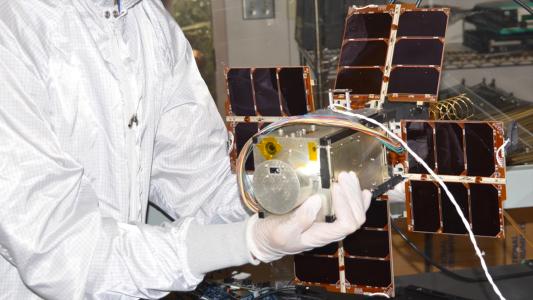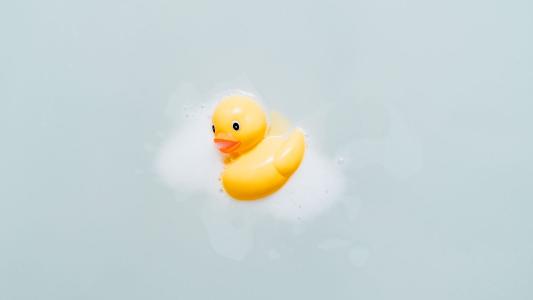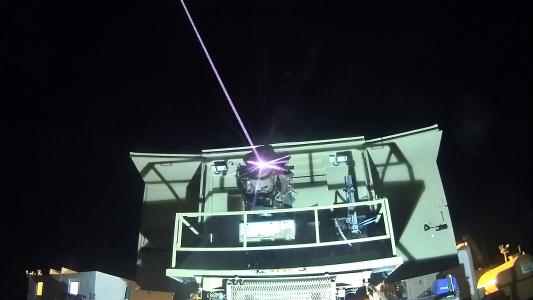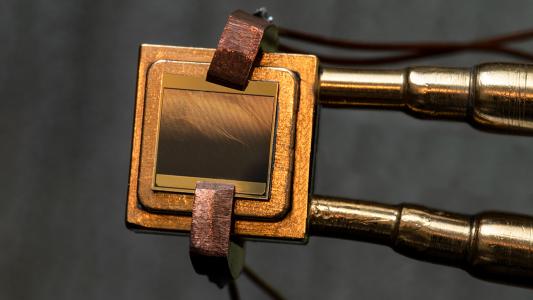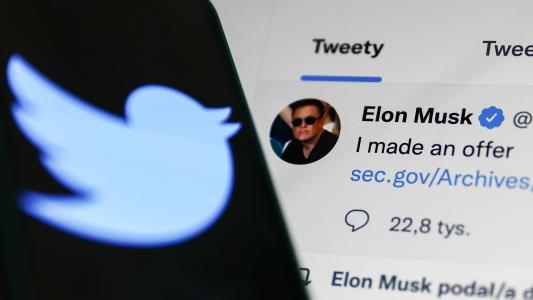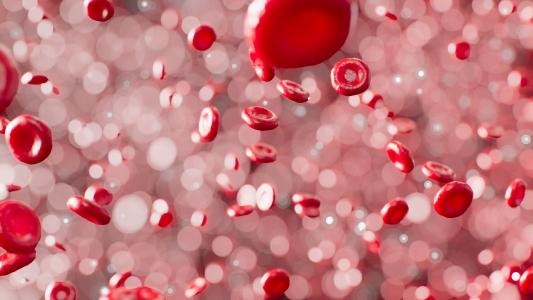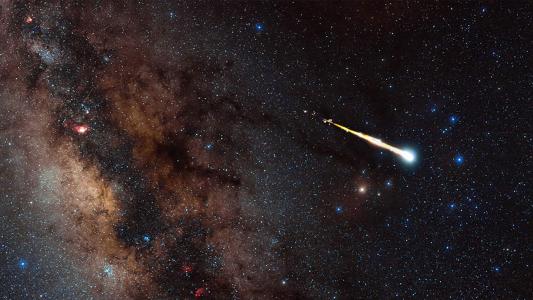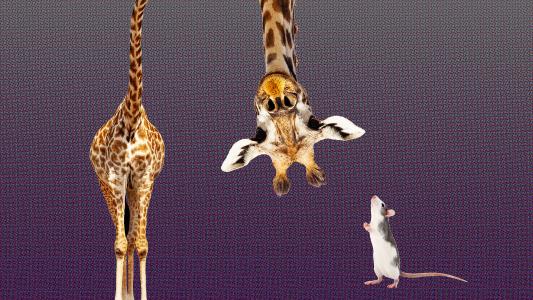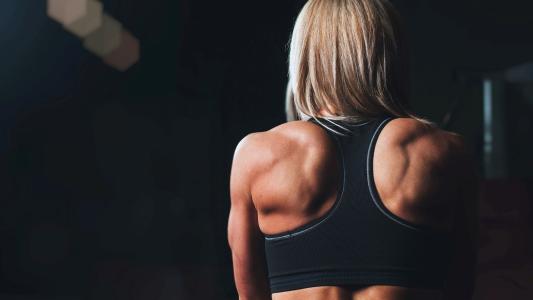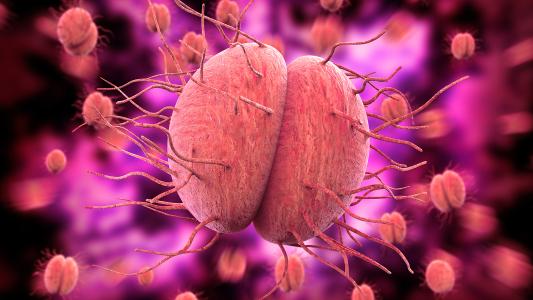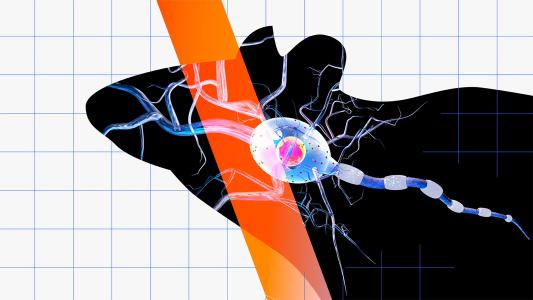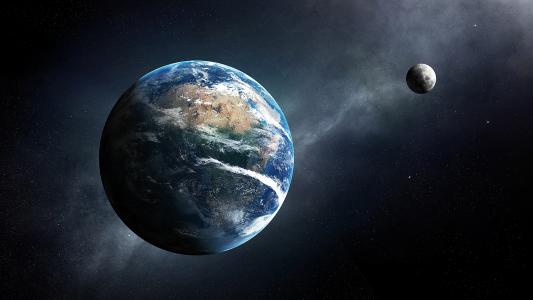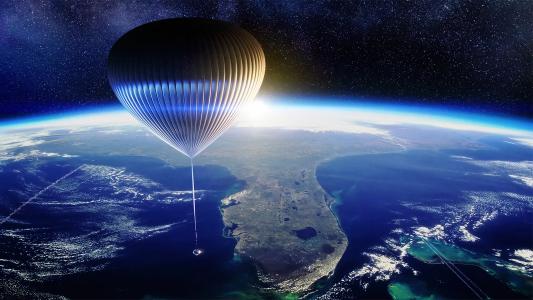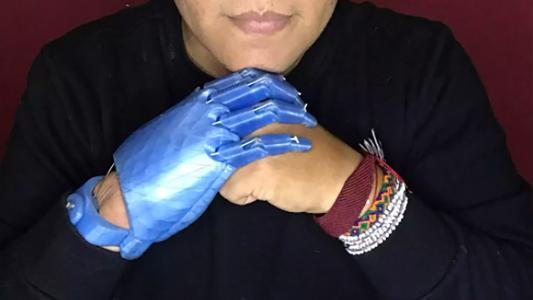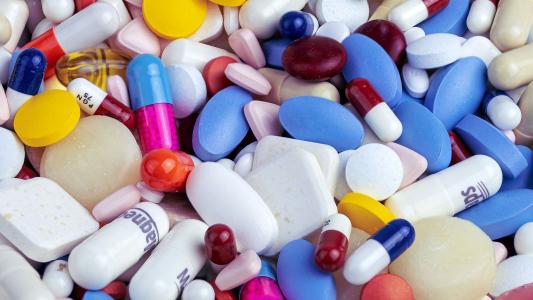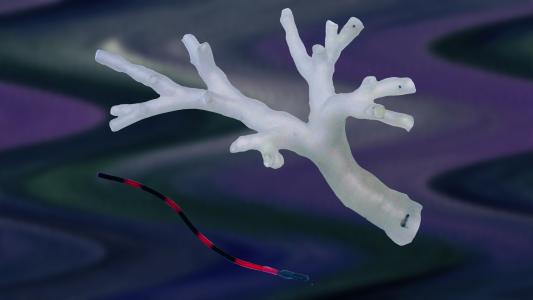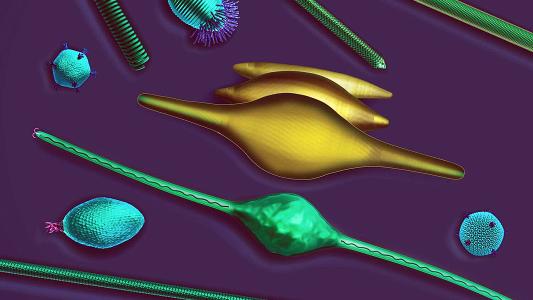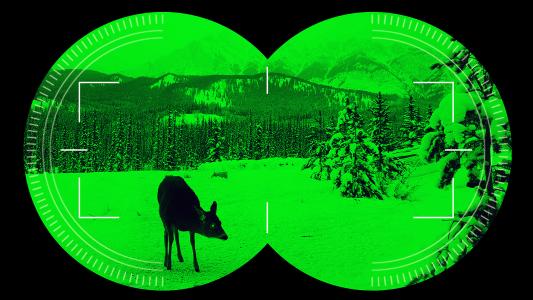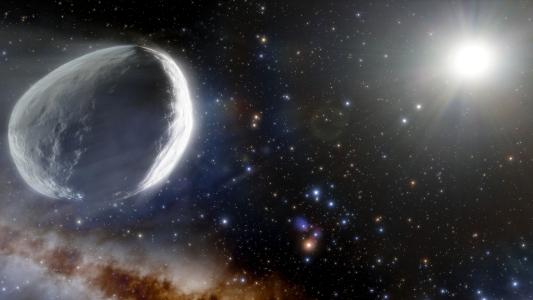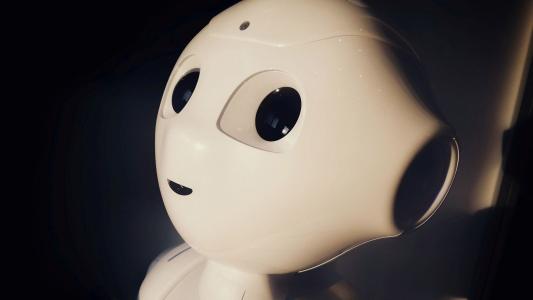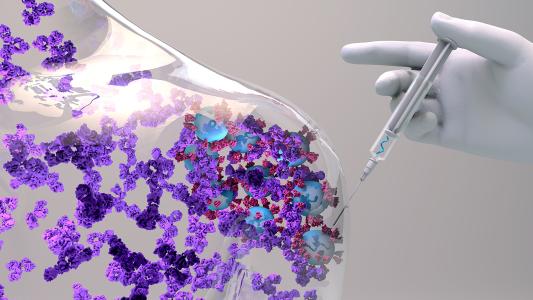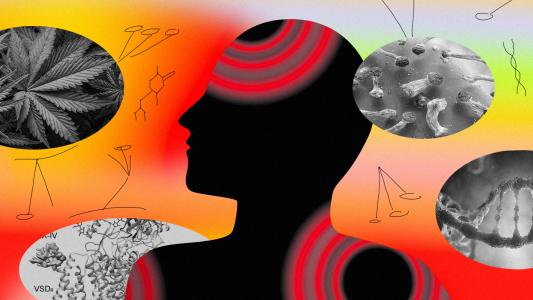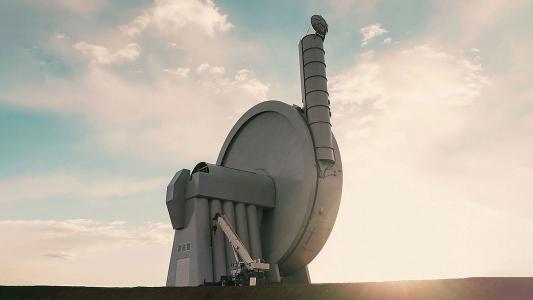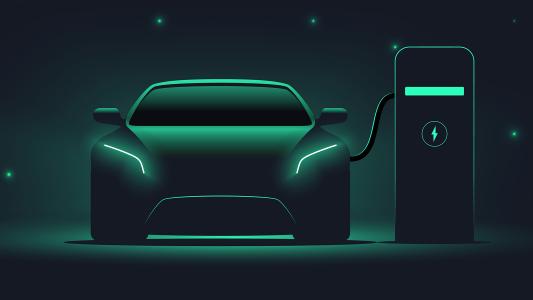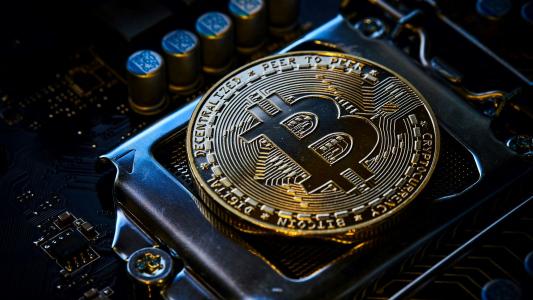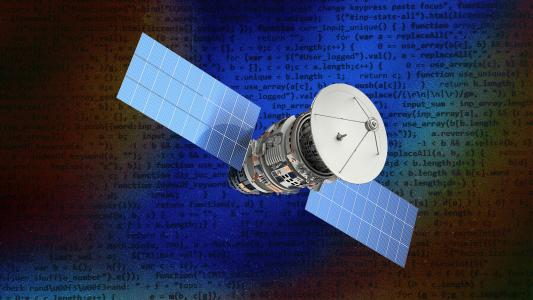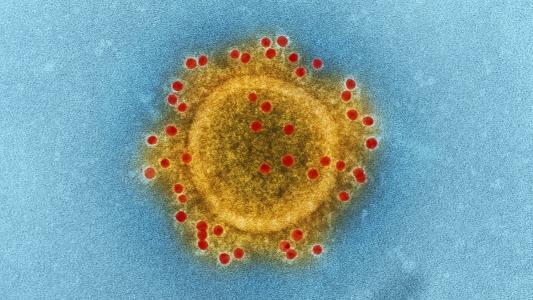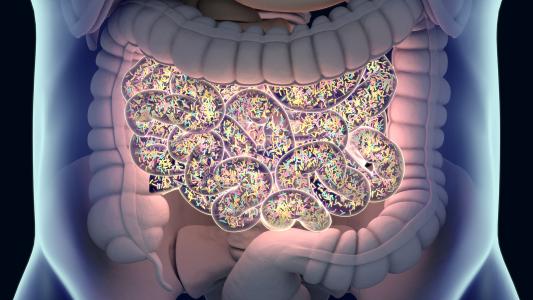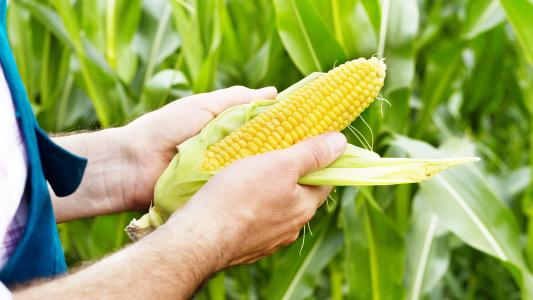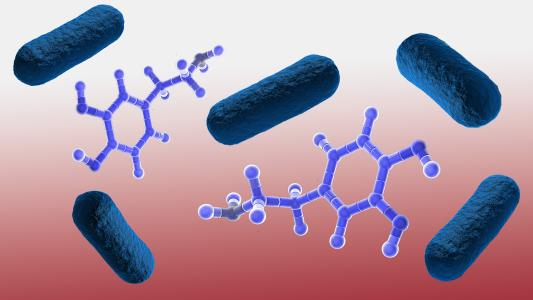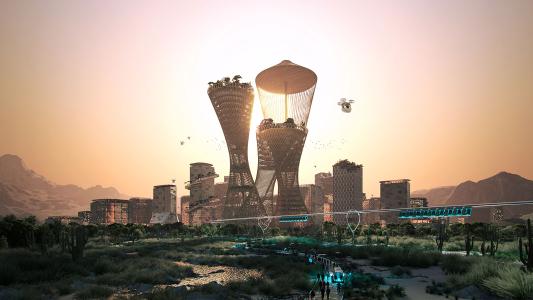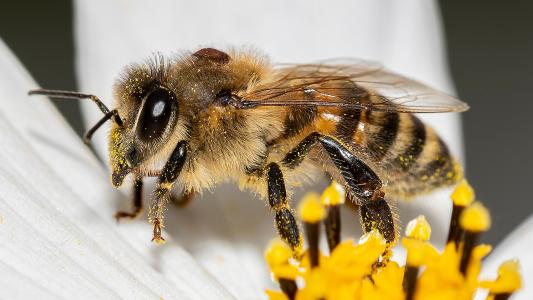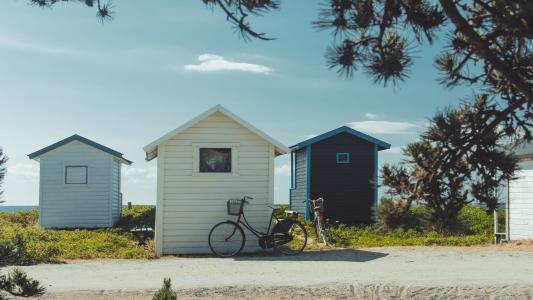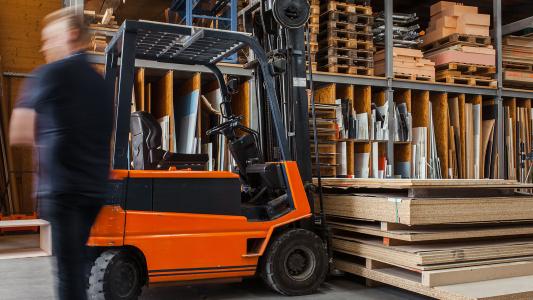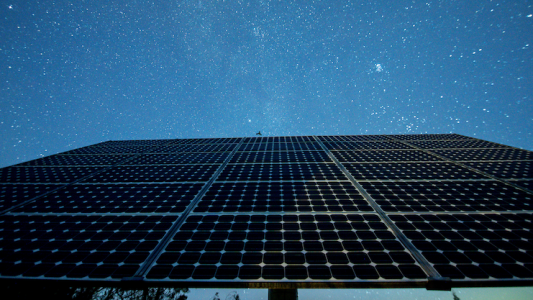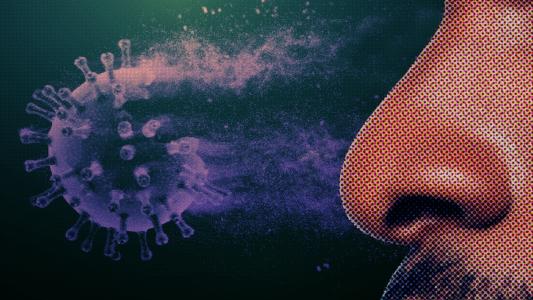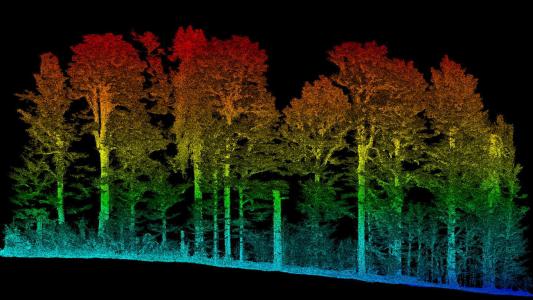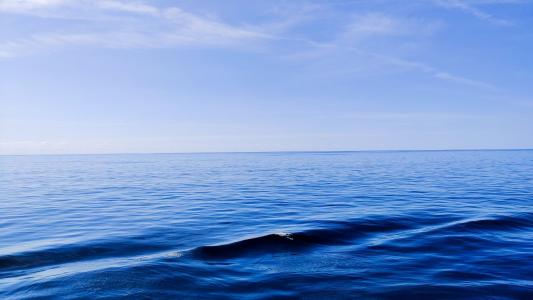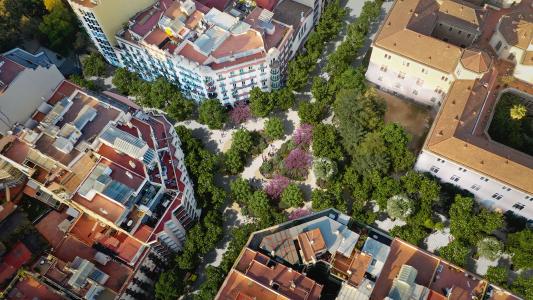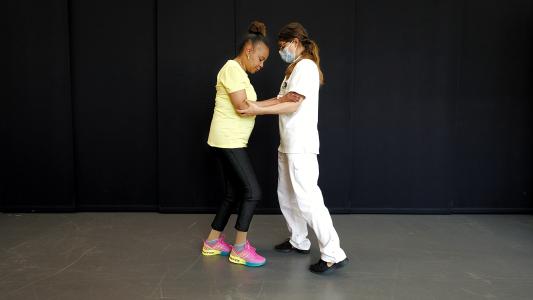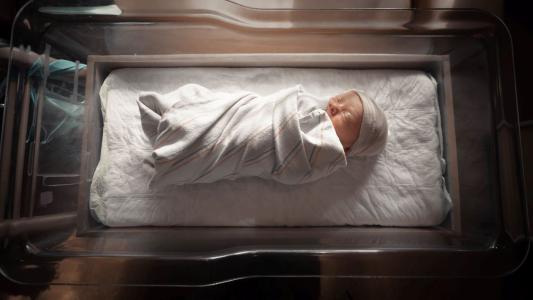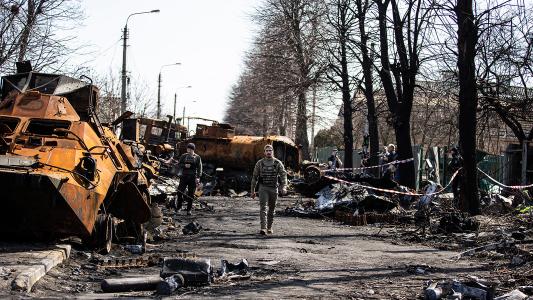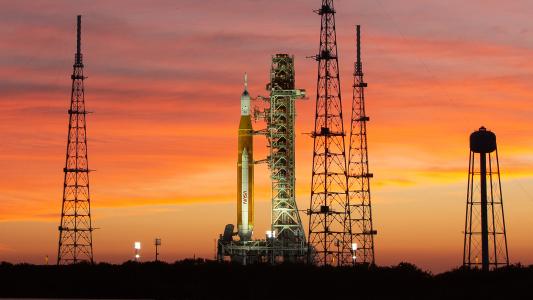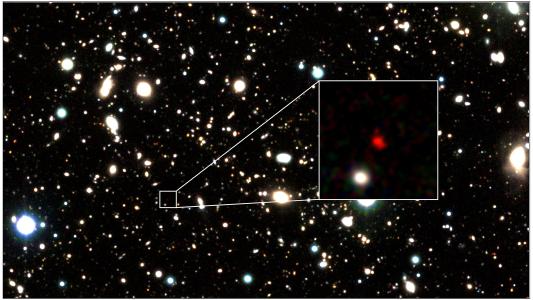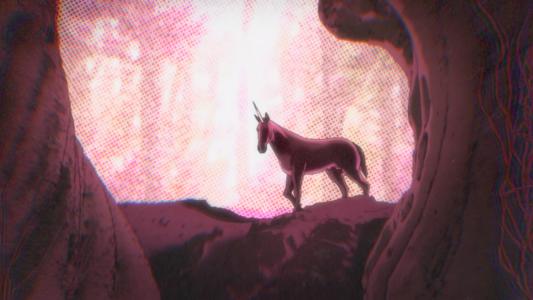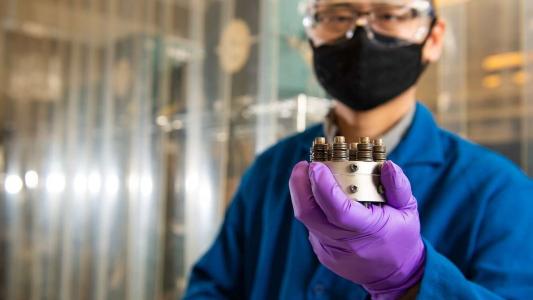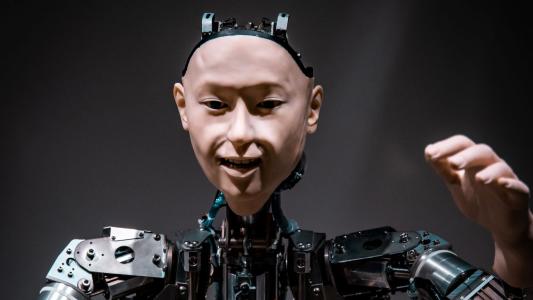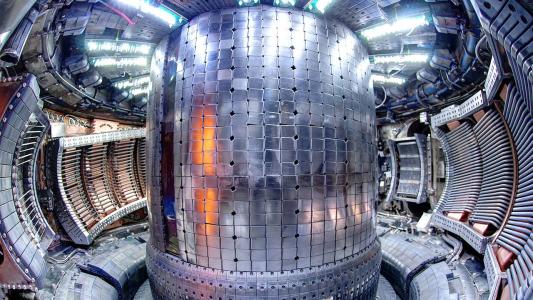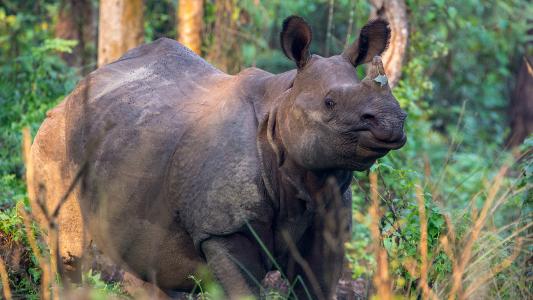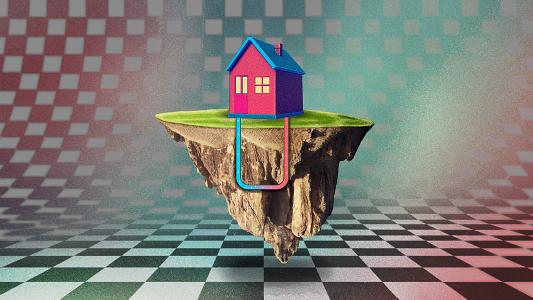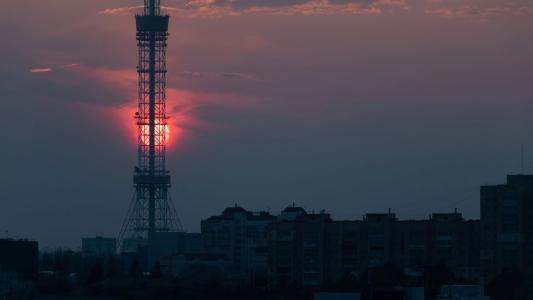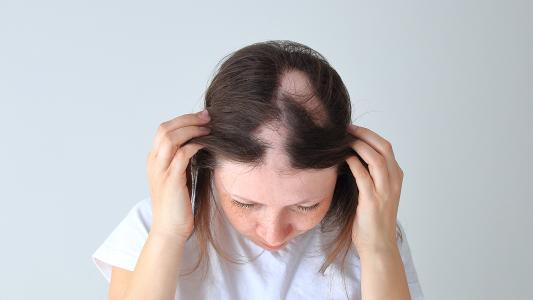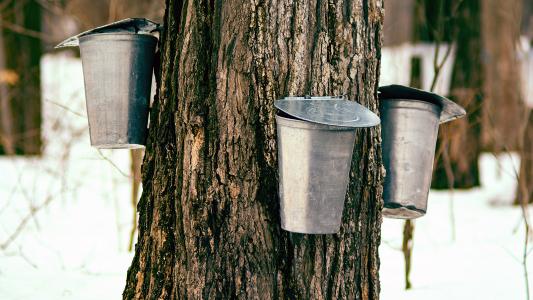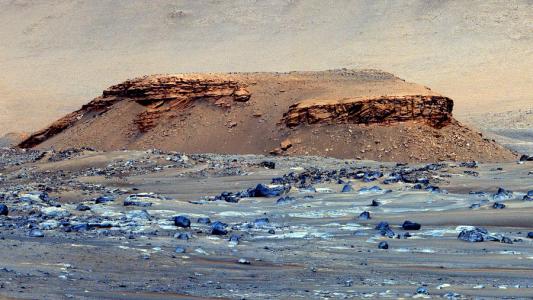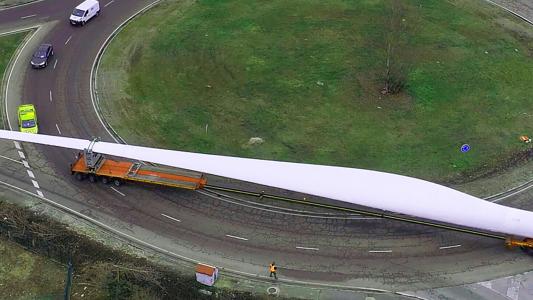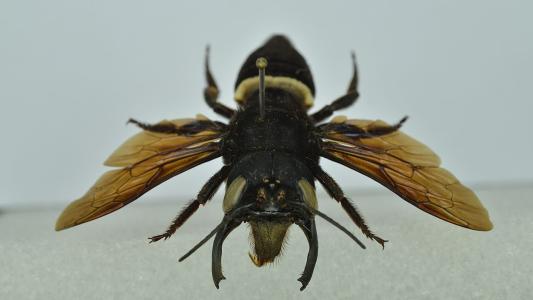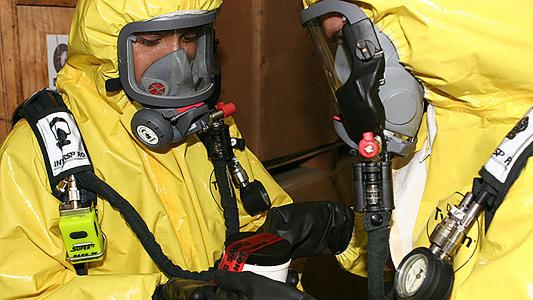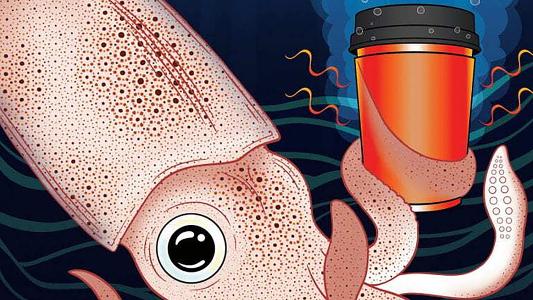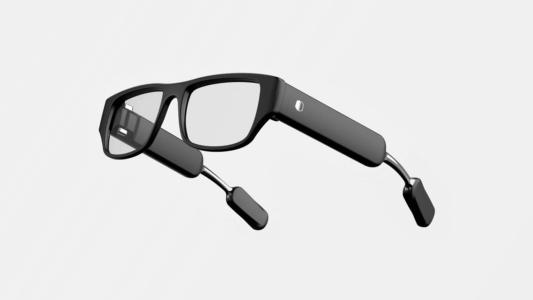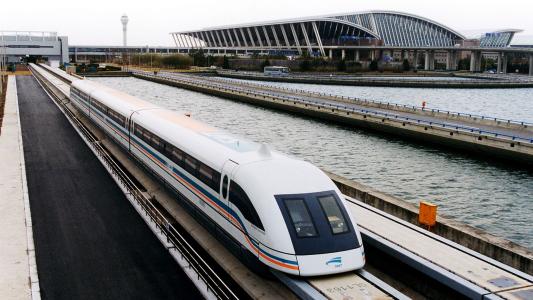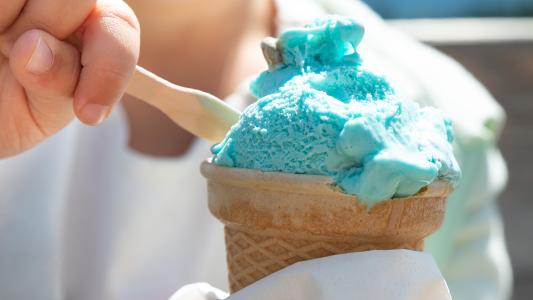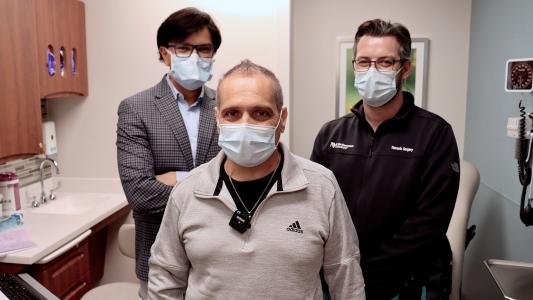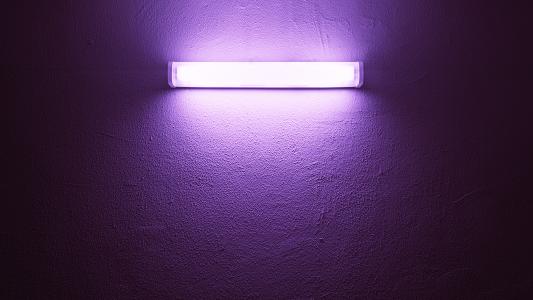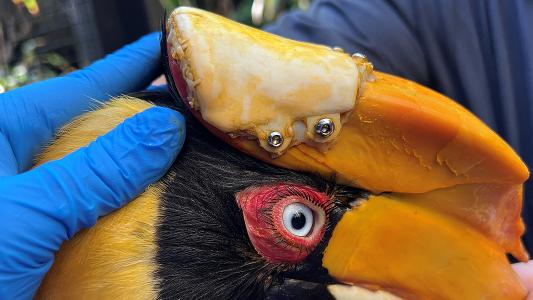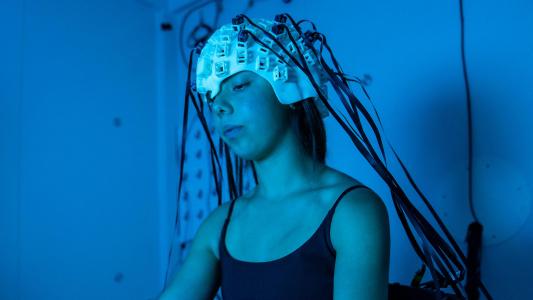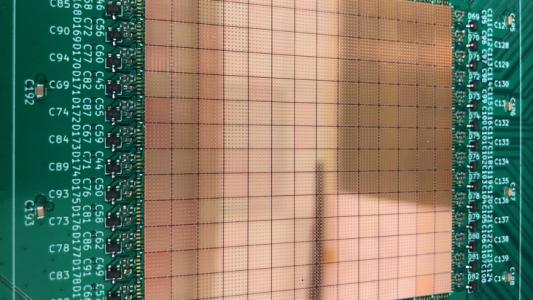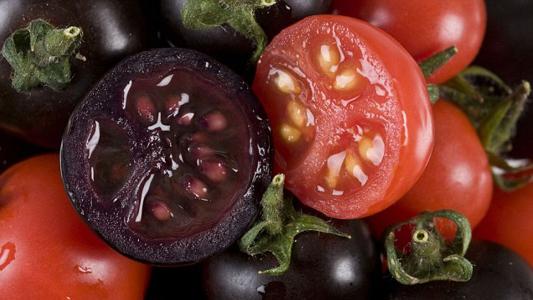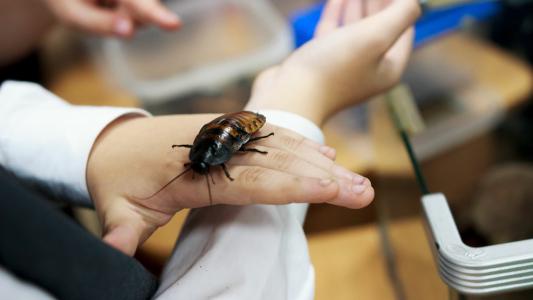The next big disruption is coming: How cities can prepare for flying cars
Urban Aerial Mobility - or 'flying cars' - could present a more flexible way for cities to invest in future infrastructure.
Introducing the Beautiful Minds competition on innovating higher education
In partnership with Lumina
Meet the three organizations with a chance to win $50,000.
Watch a helicopter attempt to catch a falling rocket (Updated)
Aerospace startup Rocket Lab is going to attempt to catch a falling rocket using a long hook dangling from a helicopter.
How hypersonic missiles work and the unique threats they pose
Hypersonic systems have been in use for decades, but the latest ones are highly sophisticated new technology.
WeChat users try to keep Shanghai lockdown protest video ahead of censors
WeChat users have turned to all manner of tricks in a cat-and-mouse game with CCP censors to keep a video about the Shanghai lockdown online.
Elon Musk’s Starlink fights off Russian attacks in Ukraine
A Pentagon official was impressed by how quickly the Starlink internet network responded to electromagnetic warfare in Ukraine.
Bioluminescent bacteria will soon light up this French street
French commune Rambouillet is serving as a testing ground for the soft glow of bioluminescent bacteria on the street.
Babble hypothesis shows key factor to becoming a leader
Researchers show that intelligence is not the most important factor in leadership, simply talking the most is.
Europa’s icy shell may harbor habitable pockets
Using radar data from our own world, Stanford researchers have proposed a new place to look for life on Jupiter’s icy moon.
Computer-designed miniproteins unleash a whole new kind of drugs
Using a computer program, researchers have created miniproteins that they hope can lead to new drugs.
This wristband tells you what food to buy based on your DNA
By analyzing genetic code determining susceptibility to health conditions like diabetes, it tells you which foods are best for you.
NASA uses “holoportation” in space for first time
Holoportation tech developed by Microsoft virtually sent a flight surgeon to the ISS to talk to an astronaut.
New exoskeleton lets you enter the boxing ring as a robot
Japanese company Skeletonics has developed a new exoskeleton that lets you enter the boxing ring as a nine-foot-tall robot.
How to tell if you can trust an AI
MIT has developed a new method for quickly and easily evaluating machine learning decisions, which could help us build trustworthy AI.
This solar-powered motorhome was designed by students
Students from the Technical University of Eindhoven in the Netherlands have created a solar-powered motorhome, shaped like a huge teardrop.
An ancient enzyme could supercharge photosynthesis
Researchers have resurrected an ancient version of the enzyme Rubisco in the hope of supercharging photosynthesis in today’s plants.
T cells and viruses, an unlikely duo, team up to kill tumors
A new Mayo Clinic-developed immunotherapy combining CAR-T cells and cancer-killing viruses looks promising in mouse models.
Big tech companies pledge nearly $1 billion toward carbon removal
The pledge is an advance market commitment — an economic strategy that's been used to increase vaccine coverage across the planet.
Former NHL enforcer builds an incredible electric airplane
An electric airplane developed by Beta Technologies, an ex-NHL player's startup, is on the wish lists of Amazon, the US Army, UPS, and more.
Hackers say cracking power grid tech was easiest challenge yet
During an industrial control systems hacking challenge, a Dutch team won $40,000 for cracking tech used to control the power grid.
Breakthrough artificial fingertip mimics our sense of touch
A new artificial fingertip replicates humans' sense of touch by mimicking the microscopic anatomy of our fingertips.
Unbelievably sensitive NACHOS satellite is ready to save lives
The cutting-edge NACHOS satellite will aid in our fight against climate change and potentially save hundreds of people from gruesome deaths.
Drug to treat alcoholism could also safely reduce anxiety
The alcoholism treatment disulfiram may be able to serve double-duty as an anti-anxiety medication, according to mouse studies.
We overwash our bodies because bad odors are uniquely disgusting
Overwashing is bad for skin health, but many people do it anyway. One reason is that our brains intimately associate stink with disgust.
Israeli and US Navy lasers successfully shoot down drones, rockets, artillery
Israeli and American armed forces have successfully tested air defense systems using lasers to destroy incoming targets.
MIT’s new heat engine beats a steam turbine in efficiency
A new highly efficient heat engine with no moving parts could allow us to generate electricity from renewables year round.
What will happen if Elon Musk does buy Twitter? (Updated)
Billionaire Elon Musk is trying to buy Twitter, and if successful, he plans to make several major changes to the social media giant.
Bacteria living inside tumors help cancer spread through the blood
Intracellular bacteria promote cancer metastasis by enhancing the tumor cells' resistance to mechanical stress in the bloodstream.
Space Force claims interstellar object hit Earth in 2014
The astronomy community is divided on whether a meteor detected in 2014 is the first interstellar object spotted in our solar system.
New $5-device allows healthy sperm cells to isolate themselves
About 10% of men are infertile, and often their sperm is to blame. This device could help separate the healthy cells from the others.
Mutations in 16 species reveal clues to human aging
A surprising pattern in how often mammal cells undergo somatic mutations could be a boon to longevity research.
Smart sensor tells you exactly when fruit will ripen — or spoil
Inside vast warehouses, millions of fruits sit and slowly ripen. To help packers know when fruit has got to go, a biotech startup is turning to small sensors.
Build strength with only three seconds of weight lifting per day?
Researchers have found that a four-week program consisting of three seconds of weight lifting per day for five days a week boosts strength.
Meningitis vaccine appears to protect against gonorrhea, too
Young people who received a meningitis vaccine appeared to be protected against the sexually transmitted infection gonorrhea, too.
Stanford scientists can control specific brain cells at a distance
Using infrared light and a Nobel Prize-winning molecule that detects chili pepper heat, researchers can control brain cells from a distance.
Gravitational waves could be “pushing” the Moon
A new study suggests we use the orbit of the Moon to find gravitational waves we can’t currently detect in other ways.
People trust AI fake faces more than real ones, research suggests
Fake faces created by artificial intelligence (AI) are considered more trustworthy than images of real people, a study finds.
Inside the luxury cabins taking tourists to space with a balloon
Space Perspective plans to use a massive space balloon to lift a luxury cabin containing space tourists high above the Earth.
Man builds his own bionic hand out of melted plastic bottles
After creating a bionic hand for himself, Peruvian engineer Enzo Romero launched a company to sell the low-cost prosthetics to others.
A “magnetic tentacle robot” could hunt down cancer deep in your lungs
UK researchers have developed a small, flexible, snake-like "magnetic tentacle robot" to navigate deep into the lungs.
A shapeshifting volcano virus’s secret has been discovered
The secret to a shapeshifting volcano virus may help us create new, better drug and vaccine delivery platforms.
Here’s what full-color night vision looks like now
Researchers at UC Irvine have created a proof-of-concept AI that can take night vision images and accurately turn them into full color.
Largest comet ever seen is 80 miles wide, says NASA
Comet Bernardinelli-Bernstein is the largest comet ever observed, according to a new study based on Hubble Space Telescope data.
Does this artificial intelligence think like a human?
A new technique compares the reasoning of a machine-learning model to that of a human, so the user can see patterns in the model’s behavior.
These upcoming cancer vaccines may prevent tumors before they appear
A new generation of preventative cancer vaccines for non-viral cancers are set to enter their first trials.
Psychedelics, brain implants, and the future of chronic pain relief
The future of chronic pain relief could include psychedelics, gene therapies, brain implants, and other cutting-edge alternatives to opioids.
SpinLaunch to fling a NASA payload toward space
SpinLaunch is going to use a massive centrifuge to accelerate a NASA payload to supersonic speeds before flinging it toward space.
An accidental discovery could change the world
A surprise discovery by Drexel University scientists could unlock an elusive technology: lithium-sulfur batteries.
Behind the crypto hype is an ideology of social change
Unlike technology enthusiasts or crypto marketers, “true bitcoiners” didn’t talk about technology, but trust and corruption.
An old satellite was hacked to broadcast signals across North America
A recent satellite hacking shows that end-of-life satellites may be vulnerable.
Researchers identified over 5,500 new viruses in the ocean
These discoveries help scientists better understand not only the evolutionary history of viruses but also the evolution of life on Earth.
MIT’s new bacteria protects guts from antibiotic-caused dysbiosis
An engineered bacteria protects the gut microbiome from antibiotics to help people battle infections without risking dysbiosis.
Silencing one gene with CRISPR boosts crop yields by 10%
Using CRISPR to knock out a single gene in corn and rice increased crop yields by up to 10% in field trials.
Probiotic gut bacteria can produce a vital Parkinson’s drug
L-DOPA is a miraculous Parkinson’s drug with terrible side effects. Researchers have created drug-producing bacteria that may help.
Metaverse real estate prices are booming. This is why.
People are paying millions of dollars to buy plots of pixellated land in virtual worlds, even though they doesn’t fully exist yet.
Why Starting New Cities Isn’t a Quick Fix for the Housing Crisis
American towns and cities are no longer able to adapt to new residents. Is building new cities really the solution to this problem?
CRISPR could create hypoallergenic cats
The results of a recent study found that genetically engineering cats could be a solution to eliminating cat allergies.
One breed of honey bee can survive its deadliest threat
A line of honey bees bred to resist the Varroa mite parasite has proven itself in a large-scale trial involving more than 350 bee colonies.
These innovative projects are tackling homelessness around the world
It’s been estimated that at least 150 million people, which is about 2% of the world’s population, are homeless.
The age of the autonomous forklift is here
Facing a skilled labor crunch, companies are turning to autonomous forklift fleets for a safer, faster, more efficient work environment.
New solar panels generate electricity long after the sun sets
Engineers at Stanford University have created a solar cell that generates electricity at night by exploiting the process of radiative cooling.
Strange treatment may restore sense of smell after COVID
Philadelphia doctors are treating COVID patient’s loss of smell with plasma-soaked sponges. But whether it is working or not still needs to be sniffed out.
Lasers from space create unique new map of Earth’s forests
A lidar instrument on the ISS has been used to create a near-global 3D map of the Earth’s biomass for conservation and climate research.
Methane-eating bacteria discovery could help capture gas from the air
A new discovery could kickstart efforts to engineer methane-harvesting bacteria, fight greenhouse emissions, and “mine” the air.
Could you sniff out counterfeit whiskey?
An “electronic nose” that can accurately identify a whiskey’s brand, region, and style could help combat the sale of counterfeit whiskey.
Barcelona’s plan to “pedestrianize” its downtown could transform our cities
A new method for evaluating the potential for superblock transformations in different cities could increase their rollout across the globe.
Bedridden woman stands again thanks to spinal implant
A spinal cord stimulator is helping a woman who was bedridden for 18 months because she fainted every time she stood up regain her mobility.
Should we use genome editing to make better babies?
Over the years, many different people, from preachers to philosophers, have voiced their concerns over the safety and ethics of gene editing.
The future of classified intelligence may be sharing it
Faced with an enemy adept at information warfare, the US and allies are turning to a new, unusual way to use classified intelligence.
NASA’s massive SLS rocket is one test away from launch
NASA's moon-bound SLS rocket is at Kennedy Space Center and ready for its wet dress rehearsal — the last major test before launch.
Farthest galaxy from Earth discovered by Tokyo astronomers
Astronomers have discovered a new farthest galaxy from Earth, and it could change what we thought we knew about the early universe.
NFT art has sold for millions at auction, but what even is it?
In partnership with Coinbase
Everything from artwork to driver’s licenses could be converted into NFTs.
Cheap molten salt battery can store energy for months
A low-cost molten salt battery that can store energy for months could allow us to tap into renewables year round.
The subtle art of language: why artificial general intelligence might be impossible
Until robots understand jokes and sarcasm, artificial general intelligence will remain in the realm of science fiction.
Where’s my holographic TV?
Holographic TVs are the technology of the future and maybe always will be.
Nuclear fusion hit a milestone thanks to better reactor walls
A team of scientists have shattered the record for the amount of energy produced during a controlled, sustained fusion reaction.
One-horned rhino population increases by 200 in four years
A census of the one-horned rhino population at Kaziranga National Park found that the vulnerable species is on the rise.
"Geogrid" helps cut home energy bills to just $1 per month
Austin’s Whisper Valley housing development uses geothermal heat pumps and solar panels to slash residents’ energy bills.
How Ukraine has defended itself against cyberattacks – lessons for the US
Russian hackers stepped up their efforts against Ukraine in the run-up to the 2022 invasion, but with notably different results.
A common arthritis drug treats alopecia (Updated)
A common arthritis drug may be an effective alopecia treatment, based on a trial in which it helped people regrow their hair in just 36 weeks.
The West Coast wants to tap into the maple sugar market
Over 75% of the world’s maple syrup production is in Quebec. But with climate change threatening their seasons, West Coast producers are looking to tap in.
Rover images confirm Jezero crater is an ancient Martian lake
Without driving anywhere, the rover was able to solve one of the big unknowns, which was that this crater once held water.
World’s first fully-recyclable wind turbine blade prototype debuts
Wind turbine blades are notoriously difficult to recycle, but researchers and industry players hope a new material design may change that.
World’s largest bee, thought to be extinct, found in Indonesia
The giant bee was first discovered in 1859, but since has only officially sighted once. Now, researchers have found a specimen alive and well.
From drugs to chemical weapons with a flip of an AI switch
AI drug discovery models can be repurposed to darker ends — instead of discovering new treatments, they could create thousands of brand new chemical weapons.
Squid skin inspires heat-regulating coffee cup
Inspired by squid skin, UC Irvine engineers have created a cheap, easy-to-recycle material that can be “tuned” to regulate heat.
Nimo smart glasses are like a PC for your eyes
India-based startup Nimo Planet is now accepting reservations for its Nino smart glasses, which let wearers view six virtual screens.
This new “levitating” Chinese train will be the fastest in the world
It would only take 2.5 hours to travel from Beijing to Shanghai, a journey of more than 1,000 km or 620 miles.
A new ingredient saves ice cream from being ruined by ice
Special particles in plants can prevent the formation of texture-ruining ice crystals in ice cream — and maybe help preserve donor organs.
Rare double lung transplant saves cancer patient’s life
A Chicago lung cancer patient’s successful double lung transplant is a ray of hope for others with the deadly disease.
New UV light safely kills 98% of airborne pathogens indoors
Far-UVC light — a type of ultraviolet light that isn’t harmful to human health — killed 98% of airborne microbes indoors in a new study.
3D-printed prosthetic helps big bird beat cancer
After removing part of a great hornbill bird’s casque, Florida veterinarians replaced it with a 3D-printed prosthetic.
Death: how long are we conscious for and does life really flash before our eyes?
Seeing one’s life flashing before one’s eye might be our ultimate attempt – however desperate – to find meaning in our lives.
Superjumbo jet engine flies on 100% sustainable aviation fuel
For the first time, an Airbus A380 superjumbo jet flew with 100% sustainable aviation fuel powering an engine.
In a hole in Earth’s magnetic field, neuroscientists are peering into the human brain
By using quantum physics to measure magnetic fields, researchers are pushing closer to measuring the brain in ways we couldn't before.
Credit card-sized device focuses terahertz energy to generate high-resolution images
The advance may enable real-time imaging devices that are smaller, cheaper, and more robust than other systems.
Purple tomatoes could soon hit store shelves
Purple tomatoes modified to be packed with antioxidants found in blueberries could soon be approved for sale by the FDA.
Giant cyborg cockroach could be the best search-and-rescue bot
The cyborg cockroaches are outfitted with sensors that can identify heat, carbon dioxide, and body movements.
